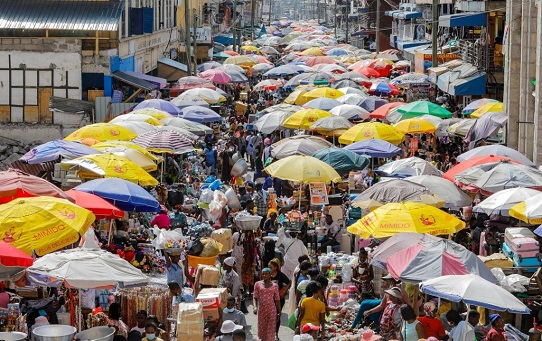For the fourth month in a row, Ghana’s inflation has slowed down.
The inflation rate for July declined to 20.9% from 22.8% in June.
The inflation rate fell to a 28-month low in July, allowing for more monetary policy easing this year.
READ ALSO: Inflation drops to 22.8% in June
According to the Ghana Statistical Service, food inflation went down to 21.5% from 24.0% in June 2024, while non-food inflation also fell to 20.5%.
Government Statistician, Prof Samuel Kobina Annim addressing the press indicated that inflation on imported items also dropped to 15.6% from 17.5%.
This, he attributed to the stability of the cedi in July 2024. However, inflation on locally produced items stood at 23.3% for July 2024.
“The question on the exchange rate is always an important one that is why we have provided a trend analysis from June 2023 to July 2024. The dominance of the inflation on imported items can be aligned to the exchange rate stability “, he said.
Housing, water, electricity, gas and other fuel products recorded an inflation rate of 28.6% year on year.
Meanwhile, alcoholic beverages, tobacco and narcotics recorded an inflation rate of 28.3%.
At the regional level, all 16 regions witnessed some reduction in their inflation levels.
Upper East Region recorded the highest inflation of 26.9 per cent while the North East Region recorded 10.6 per cent for July 2024.
Greater Accra and Ashanti Region recorded inflation rates of 22.2% and 18.7% respectively.
The Central Bank of Ghana plans to render its next interest rate decision on September 30.





